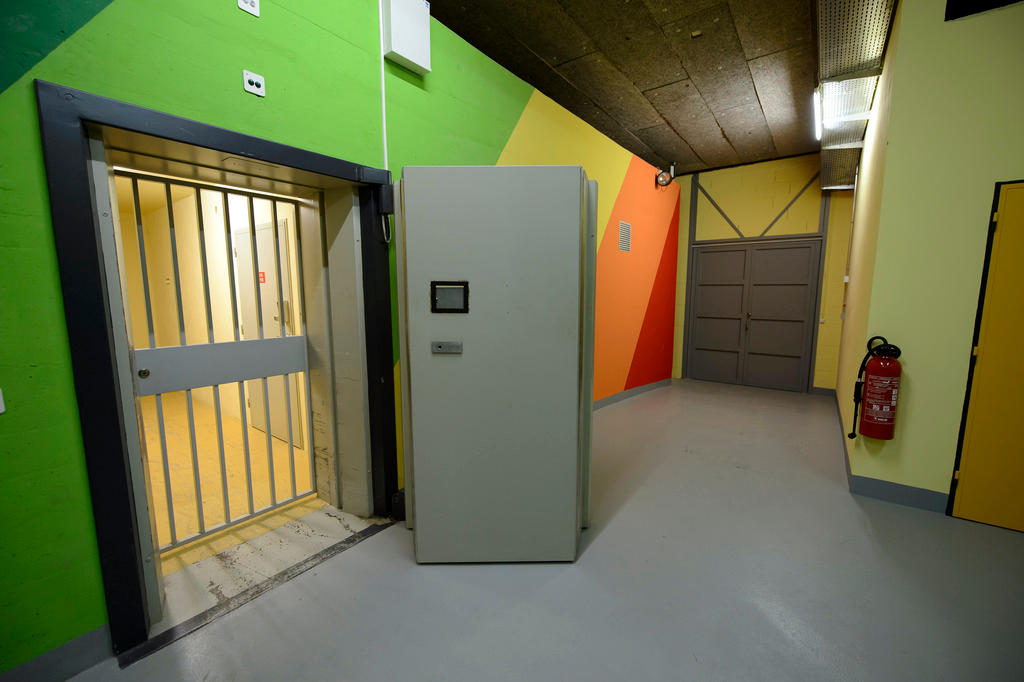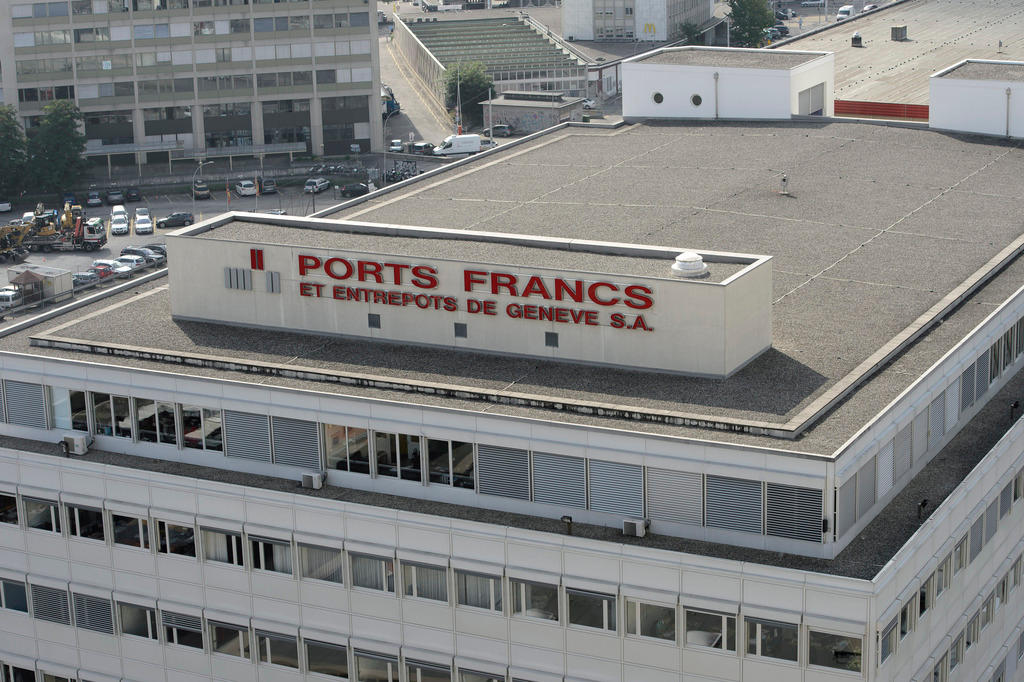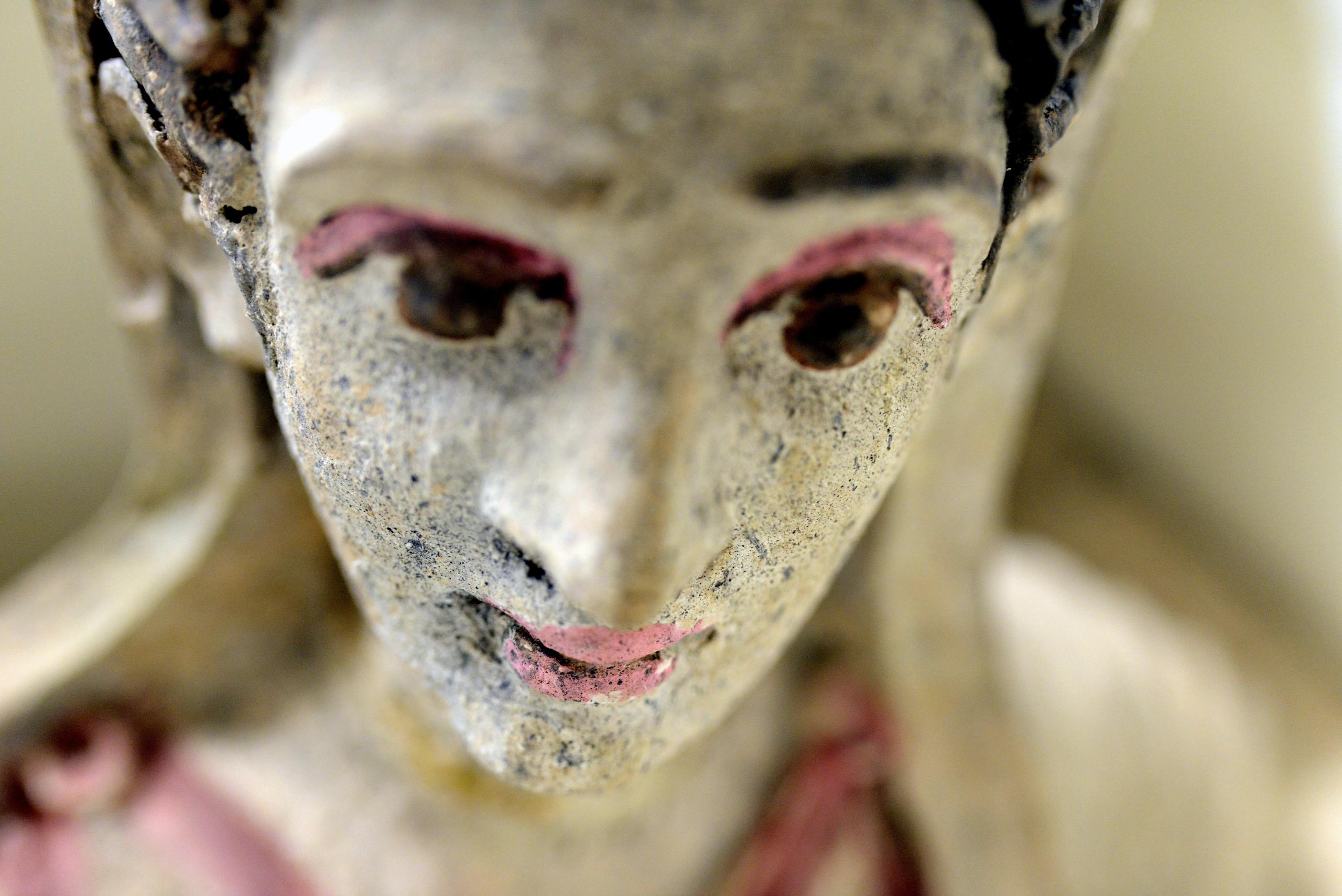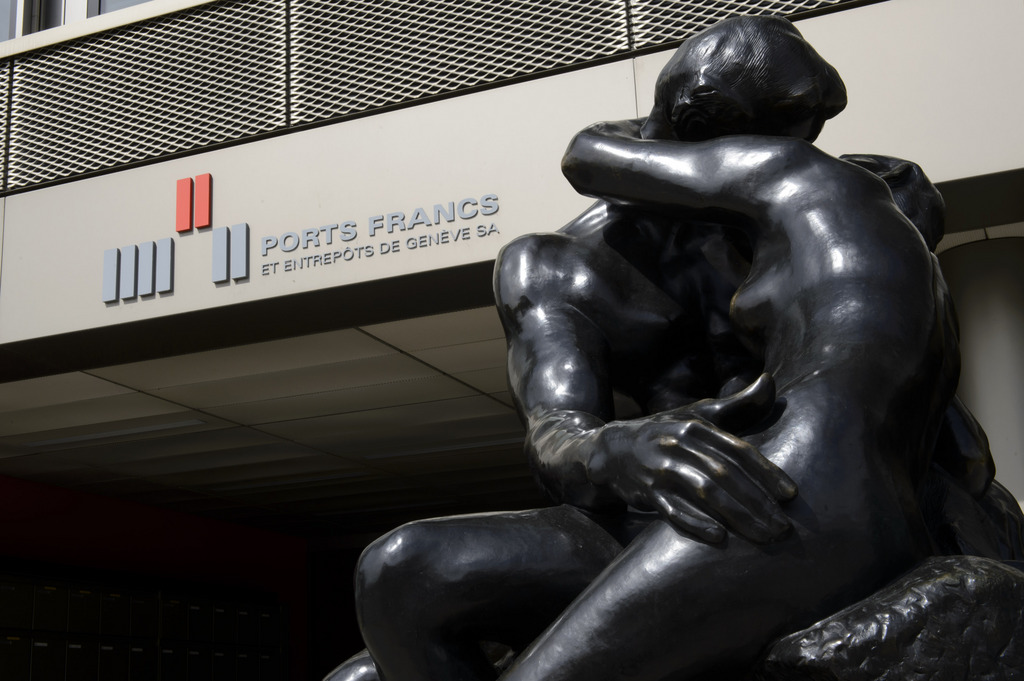Experts help Geneva free port crack down on stolen loot

Geneva’s free portExternal link plans to employ independent specialists this summer in an attempt to prevent valuable antiques looted from Syria and other war zones ending up in its warehouses.
“We cannot wait for the Swiss customs to deploy sufficient people to carry out checks on artefacts stored here. It’s too risky, so we are introducing our own measures,” David Hiler, president of Geneva Free Port, told reporters on Wednesday.
From summer, anyone wanting to store ancient artefacts in the sprawling warehouse facility in southwest Geneva will undergo stringent checks by an independent firm of specialists hired by the free port to investigate the validity of requests and precise origins of antiques.
In addition, from the end of the year anyone storing items there will also have to communicate the identity of the final beneficiaries. Over 200 tenants, including art dealers, collectors, rich owners and storage firms, are concerned. The identities of subtenants and their activities will also be required. Names and ownership will be cross-checked with Interpol and against other databases.
A biometric system tracking the movement of clients within the free port should be operational by the end of the year. Swiss customs officials will continue to carry out their own checks in parallel.
The stricter measures decided by the free port management go beyond the current minimum legal framework, under which free ports cannot force tenants to disclose who they are actually leasing space to – the so-called “beneficial owners”. That authority rests with Swiss customs. A new law that came into effect on January 1 requires free port tenants to only disclose their sub-tenants’ formal names, not their beneficial ownership.
Risky business
Geneva’s free port is home to billions of Swiss francs’ worth of fine art and other riches, including the world’s biggest wine cellar. According to the specialist art journal Connaissances des ArtsExternal link, in 2013 the free port held around 1.2 million artworks.
Despite the financial success of Switzerland’s ten free ports and 245 customs-free zones, a 2014 reportExternal link by the Swiss Federal Audit Office warned they could be used improperly for fiscal optimisation or to circumvent laws on “cultural goods, war materials, medicines or the trade in raw diamonds”.
Geneva officials have previously raised concerns about the risks surrounding the trade in stolen antiques both in terms of money-laundering and potential support for arms traffickers and terrorist groups.
“The main risks are not right now but allowing traffickers to stock an item for a sufficient period of time to invent a story for it,” said Hiler.
Tighter independent checks must be seen in this light, he said.
“We looked at this issue and felt that we couldn’t tackle it based on existing customs checks, which are insufficient and not systematic,” he declared.
Geneva officials have frequently complained that the number of federal customs workers active at the free port – a private company majority owned by the Geneva state – is insufficient. But an increase is unlikely in the present cost-cutting climate in Bern.
Legacy cases
Recently, a number of cases from the last century involving stolen artefacts held at the Geneva facility, lengthy legal cases and restitutions have come to light.
The site found itself again under scrutiny surrounding the Panama Papers scandal and after the identification of a $20 million Modigliani painting in its tax-free vaults that was allegedly stolen by the Nazis. A probe by Swiss prosecutors into the ownership of “Seated Man With a Cane” was closed at the end of May.
Hiler said despite new tighter checks at the free port, it cannot be excluded that new scandals will emerge that date back to the 20th century when rules were laxer.
“We were not very good students. It took us 30 years to sign the 1970 UNESCO convention on cultural property,” said Hiler.
The situation has since changed, said the former Geneva finance minister. The Swiss cabinet laid out a new free port strategy last year and an accompanying new law and regulations came into force at the start of 2016. But further changes must be expected, said Hiler.
The International Financial Action Task Force (GAFI)External link, an intergovernmental body that closely follows issues such as money laundering and terrorism financing, inspected Swiss free ports in spring. Their report is expected within the next twelve months.
“We are preparing for a strengthening of international regulations,” said Hiler. “If all free ports [around the world] are subject to the same conditions, we wouldn’t be worried about our economic future.”
The “free” aspect of free ports refers to the suspension of customs duties and taxes. Goods may be kept there for an unlimited period of time and at minimal expense. A painting can be flown in to Geneva and kept at the warehouse for years without having to pay a levy. While goods are stored at free ports, owners pay no import taxes or duties until such time as the goods reach their final destination. If the work is sold at the free port, the owner pays no transaction tax either.

In compliance with the JTI standards
More: SWI swissinfo.ch certified by the Journalism Trust Initiative













You can find an overview of ongoing debates with our journalists here . Please join us!
If you want to start a conversation about a topic raised in this article or want to report factual errors, email us at english@swissinfo.ch.